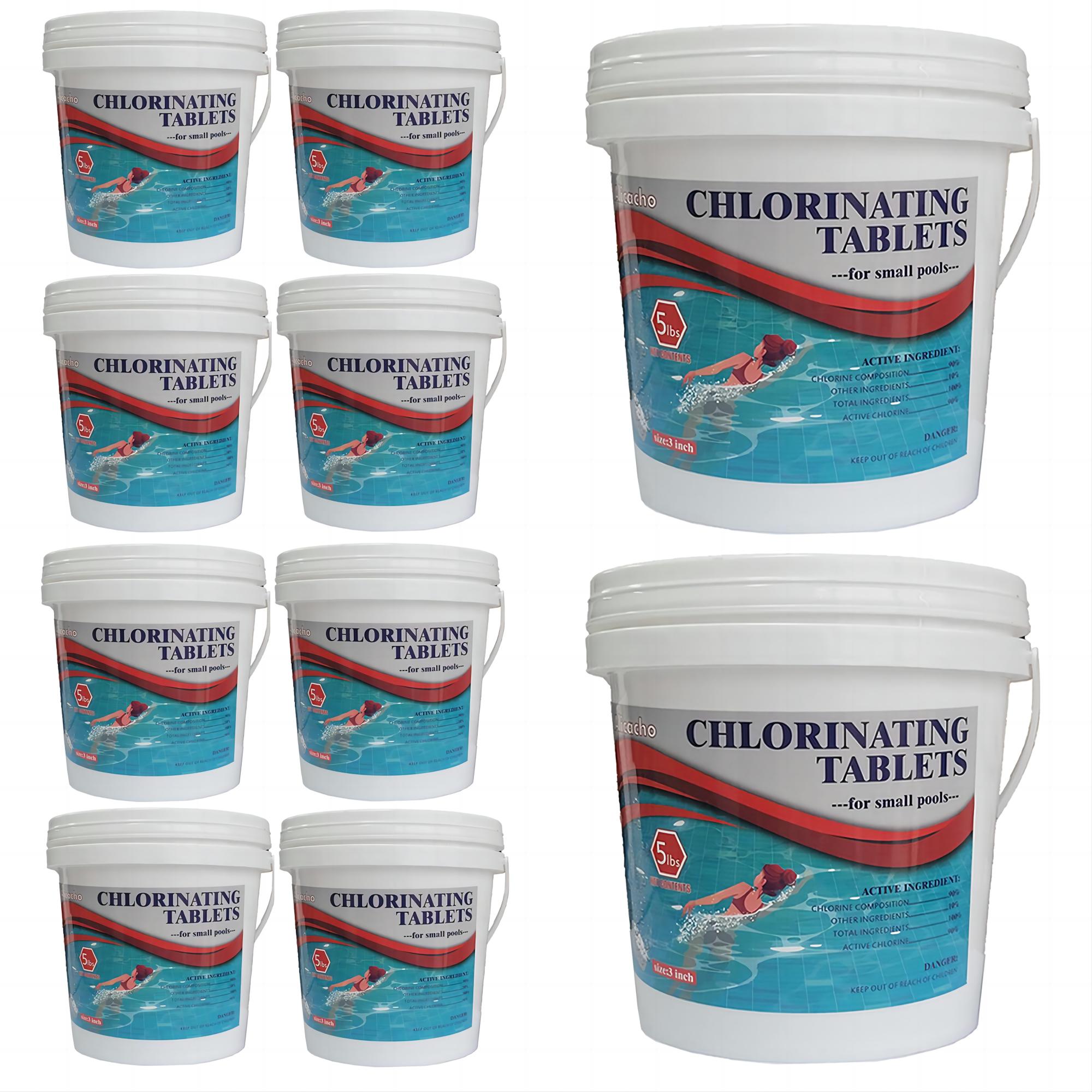It is said that algae are tough species. But, does algae grow in cold pool water, more and more people would be curious about it, especially if they have commercial pools? Well, the simple answer is, yes, algae can be strong and survive unfriendly conditions such as frizzy weather or extreme sun heat.
Cold pool water can slow down algae growth, but other factors like sunlight and water chemistry still play a role. Algae growth is halted below 40°F, but it can survive dormant in cold temperatures, potentially reviving weeks before pool opening. For effective algae removal upon reopening, refer to this post for quick solutions.
But as they said there are things that we can do to control it. There are also factors to be checked and monitored to test algae growth and finally deal with it. In this article, we will talk more about algae and its ability to grow in conditions that are too poor for anything to survive.
Part 1. Does Algae Grow in Cold Temperatures?
One of the most asked questions of pool owners is, does algae grow in cold pool water since it is not a normal condition for plants to grow? As a major consideration, the location of your pool is a great factor to consider, it affects the growth conditions of any aquatic weeds such as algae. The growth of weeds can be different in places where there is a warmer climate or cold one, it applies to both terrestrial and aquatic weeds.
Once the temperature drops, algae can still survive and grow. Once the temperature is too low, all the chemicals and control that you do such as the use of herbicides and algaecides can become ineffective, and weeds such as algae can be too hard to control as they will continue to grow. There are several factors why does algae grow in cold pool water and even in springtime as well.
Plenty of Food
Algae can have too much food as they can feed on the byproducts of the different decomposing organic debris that can be found in your pool water. Some of which are phosphorus and nitrogen. When the weather is too warm, natural bacteria will break down these nutrients, which will serve as food for these algae. Once the weather cools down, all the said bacteria will be dormant, and these organisms will definitely enjoy a feast, and algae with definitely double its population, and even more!
Light
Of course, algae need light to grow, however, it does not need much of it. Algae can even get enough sunlight from a solid and clear sheet of ice and use it for the process of photosynthesis which is vital for their growth. There can be ways to prevent the light from shining, thus preventing too much algae growth, or getting rid of it. To do it, pond dye can be used, and is available in water-soluble packets or liquid forms that you can just throw over your pond.
Well, whether you believe it or not, even if algae grows in cold pool water, there are benefits that you can get from it. It is possible to filter the water, and if the weather becomes too warm, it can be a great snack for your fish. When the algae start synthesizing, oxygen is given off as a by-product, and this can be utilized by your fish and other aquatic organisms for breathing.
Part 2. How do I Keep Algae Out of My Pool in the Winter?
Even if algae can grow in cold pool water, there are things that every pool owner can do to avoid it. It is also good that there is enough understanding of whether does algae grow in cold pool water or not. In this part of the article, we are going to discuss things that we can do to keep algae out of your pools when winter comes.
Maintain Proper Chemical Balance
One of the main things that any person can do to maintain a pool is to keep the chemical balance in control. It will also prevent algae from growing and multiplying in the winter. It is always safe to remember that a minute drop of chlorine in your pool water given that it is open and exposed can make algae grow and multiply. This is why it is important to always test the chemical levels in your pool, and make sure that all ranges are met to maintain proper chemical balance. Always check ranges of calcium hardness, pH, chlorine level, and alkalinity.

Check your filter And Make Sure It Runs Regularly
Filters are the heart of your pool! As a pool owner, you have to remember that stagnant water can trigger algae growth. To prevent algae from building up, it is safe to run the filters of your pools every few hours regularly. You can practice running your filter for an hour in two separate cycles and use a timer to run the filter during the night to avoid too much use of energy in the peak points.
Do Shock
To make sure that your pools are free from any bacteria, you need chlorine to act as a disinfectant. It can be used to get rid of harmful organisms and algae from breaking into your pool water. The reason why there can be algae in cold weather is because of the drop in chlorine levels. Pool owners can execute pool shocking once every three weeks if the water temperature ranges from 10 degrees Celsius and 20 degrees Celsius. If you notice that the water temperature is more than 21 degree Celsius you can do shocking once every 7 to 14 days. You should also run your filter for 2 to 4 hours after to make sure that chemicals are well distributed.
Always Cover your Pool
It may seem simple to take this precaution, but there are more exposed pools than open ones, and if your pool is too big, it can be hard to cover. You can get a quality cover to keep your pools from falling debris or other water contaminants that can trigger algae growth. One of the most suggested types of cover to use is the woven solid vinyl type which can also prevent sunlight from penetrating to your pools, an important factor for algae growth.
Monitor Your Pool At All Times
Of course, the most basic thing that you have to do is to maintain your pool at all times! You have to check your pool regularly and see if chemical ranges are met and contaminants are too far from penetrating your pool water. It is also a good thing to address the problems as soon as possible before they become worse, and harder to deal with. It is advisable to visit your pools once every week once the winter season comes.
These are only some of the practices that you can execute to make sure that algae growth will not prevail and affect your pool operations at some times. Once all these practices are kept in mind, control can be immediately gained, and you can be able to avoid worse things from happening, especially instances that you can not be able to control.
Part 3. Conclusion
It is a vital part of every maintenance procedure to monitor pool waters while making sure that weather conditions are also considered. Being able to figure out answers and factors as to why algae grow in cold pool water is a great help to avoid possible algae infestation that may affect your pool’s operations once summer comes. It would also be a saving in time and energy to always be ready and prepared when such situations are on the line. It is great to learn such things especially if you are just starting to run a pool, and you do not have much knowledge to maintain it.
Part 4. FAQs
1. Does Algae Grow Better in Warm or Cold Water?
Algae growth can indeed be influenced by changes in temperatures. If the temperature is too warm, algae are possible to grow faster and thicker. This is because warmer temperatures can prevent your pool water from mixing. It is also faster for small organisms to move in warmer water, and it also allows algae to float at the pool water surface faster. Also, algal blooms can absorb sunlight, which can make water warmer, thus promoting more algal blooms.
2. Can Pool Algae Grow Without Sunlight?
Algae are the type of weeds that can be able to multiply faster on warm or sunny days. This aquatic creature contains chlorophyll which it uses for the process of photosynthesis, essential for its growth. Algae take in carbon dioxide and then expend the oxygen as the by-product. Algae can grow in the shade or sun, but they can grow faster when there is proper light.




